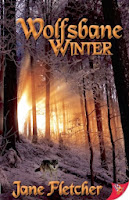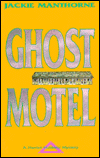New Victoria Publishers, 1998
Overview: After their brief but torrid love affair in Cemetery Murders, things have cooled off somewhat between private investigator Meg Darcy and police detective and Norwegian Ice Queen Sarah Lindstrom. Or so Meg thinks until a late night call from Lindstrom; someone has brutally murdered Lindstrom's ex-lover in Lindstrom's bed. Who would dare murder someone right in a cop's house? And maybe more importantly, why was Viv staying with Lindstrom in the first place? As the murder investigation throws Meg back with the woman who drives her mad, she must find a way to balance her conflicting feelings while tracking down a dangerous killer who might be out to murder them both.
My Reaction: While an overall decent mystery, Dead and Blonde did not quite live up to the precedent set in Cemetery Murders. I think it had a lot to do with the slightly less coherent plot and Meg constantly hashing and rehashing her relationship with Lindstrom. Having just lived through a very traumatic experience, both our protagonists are understandably on edge, but not in a way that seemed to move the story along; much of the book felt bogged-down with Meg's internal conflicts and intense sexual frustration, at the risk of eclipsing the mystery. And while relationships and sexual frustration are fun in small doses, the mystery really should be the heart of the story. Dead and Blonde is not Ghost Motel bad (thank God), but it's not rip-roarin' fun either. I'll probably read the next in the series, since it won a Lambda Literary Award for Best Lesbian Mystery in 2001, but don't feel like you're missing much unless you want to see how Meg and Lindstrom's story progresses.
Meg Darcy Mysteries
Cemetery Murders, 1997
Dead and Blonde, 1998
Mommy Deadest, 2000
A Cold Case of Murder, 2003
Cemetery Murders, 1997
Dead and Blonde, 1998
Mommy Deadest, 2000
A Cold Case of Murder, 2003

























